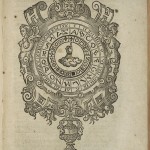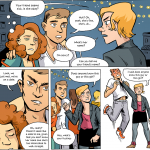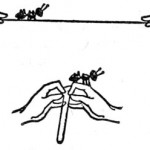In 2014, I’m reading and blogging through Pope Francis/Cardinal Bergoglio’s Open Mind, Faithful Heart: Reflections on Following Jesus. Every Monday, I’ll be writing about the next meditation in the book, so you’re welcome to peruse them all and/or read along.
The most striking line I found in this week’s meditation from Pope Francis came as he discussed the righteous Pharisee (the one from Luke 18:9-14).
Prayer is born out of history and life. To pray is to reread in the light of faith the history of every exile, every exodus, every road back home. The Pharisee in the temple was not praying out of his life; he was avoiding life and history. He was praying on the margins of life because, in declaring himself righteous, he thought himself non-historical.
It’s clear, in the Gospel, that the Pharisee is distancing himself from the tax collector with whom he finds himself at prayer, and I had figured that was fault enough. The Pharisee’s contempt for the other man is the same as viewing him as disposable. What Pope Francis made clearer to me is that the Pharisee can’t draw a sharp division between him and the tax collector except by drawing a very small circle, and placing himself on the lonely side of it.
[H]is mind moves in a perfect but narrow circle. A small circle is quite as infinite as a large circle; but, though it is quite as infinite, it is not so large… There is such a thing as a narrow universality; there is such a thing as a small and cramped eternity… [I]s it really in your small and painful pity that all flesh must put its faith? How much happier you would be, how much more of you there would be, if the hammer of a higher God could smash your small cosmos, scattering the stars like spangles, and leave you in the open, free like other men to look up as well as down!
The Pharisee cannot achieve union with God as long as he refuses to share in God’s love for all people, even someone in as terrible a job (at the time) as a tax collector or as agape-stunted as himself. By holding on to hate, he shuts the doors of heaven against himself.
And, in the same stroke, he throws away the earth, rejecting the declaration of the Roman playwright Terence, who said Homo sum, humani nihil a me alienum puto, or “I am a human being, I consider nothing that is human alien to me.”
If the Pharisee refuses to love the tax collector as a brother, the world has no other kind of siblings to furnish him with–not from the very beginning of time to its end. Declaring himself righteous is declaring himself a singleton.













